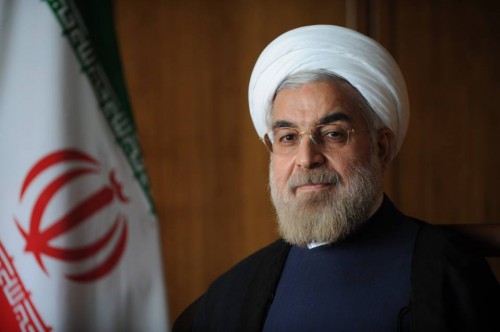Freedom of Speech Roundup
by Sampsonia Way / July 6, 2013 / No comments
In the weekly Freedom of Speech Roundup, Sampsonia Way presents some of the week’s top news on freedom of expression, journalists in danger, artists in exile, and banned literature.

Iranian President-elect Hassan Rowhani. Photo via Facebook
Iran’s President-elect Hassan Rowhani says ‘No’ to Web Censorship and ‘Yes’ to Facebook.
The Guardian. Since Rouhani’s win, web users in Iran have reported a relative easing of online censorship and say revoked access to VPN accounts has been restored. Rouhani has also pledged to minimise censorship of artistic and cultural works and said the state should provide them with security. Read more.
Al Arabiya. “There are political reasons [for internet filtering]…But filtering is incapable of producing any [useful] results.” –President Hassan Rowhani
Read more.
What the US Government Asks Google to Censor
Popular Science. Google routinely releases data about the takedown requests it receives from countries. Designer Sebastian Sadowski has taken that data, from 2010-2012, and compiled an interactive graphic charting the number and nature of takedown requests. According to the data, between July 2012 and December 2012, the US made 927 removal requests. Read here.
Tunisian Hackers Decrypt Dictator’s Old Internet Censorship Machines
France 24. “The infamous servers used to monitor Internet usage [from 2004-2007] are still there — but now, in a role reversal, Tunisian hackers have taken them over and are trying to discover their secrets.” Read here.
Hollywood’s Collaboration with Nazis
Mail and Guardian. In a controversial new book entitled The Collaboration: Hollywood’s Pact with Hitler Harvard scholar Ben Urwand argues that US film producers in the 1930s “collaborated” with the Nazis in cuts to films and self-censorship. Read more.
Hong Kong journalists fear erosion of press freedom
The Guardian. With a new, vaguely worded privacy law in Hong Kong, journalists could be jailed for up to five years, or fined up to HK$1m ($129,000) if they reveal information that causes ‘psychological harm’ or ‘loss.'” Read more.
Soviet-Era Photography Mashups Make Propaganda Illicit
Slate. Russian photographer Roman Pyatkovka has created a series of combined photographs titled “Soviet Photo” which use the propaganda imagery from the state-approved photography magazine Soviet Photo, superimposed with his illicit photos, taken during the Soviet period. Pyatkovka hopes the images enable the viewer “to reflect on the ideals and disappointments, censorship and creativity of that time.” Read here.
Raids during Macrae’s Documentary ‘No Fire Zone’
Colombo Gazette. Human rights activists have condemned the Malaysian Home Ministry for raiding the private screening of No Fire Zone, a documentary depicting war crimes in Sri Lanka, and arresting three activists without due process. Read here.
http://www.youtube.com/watch?feature=player_detailpage&v=gask0NJajug
Trailer for ‘No Fire Zone,’ a feature length film about the final months of the Sri Lankan civil war told by the people who lived through it. Video: YouTube.
Setback to Pakistani Literary Departments
Dawn. In 2010 the Pakistani government condensed many literary organizations, like the Pakistan Academy of Letters and the National Book Foundation, under the Ministry of Information. Now government employees and retired bureaucrats are becoming directors of the country’s literary organizations. Read more.
Egyptian army shuts down media outlets
CPJ. Authorities in Egypt’s new military-run government raided Al-Jazeera’s Egyptian station on July 3, disrupting its service, and shut down at least three stations supportive of Mohamed Morsi. Read here.
Hate Speech Testing Myanmar Democracy
The China Post. As Burma approaches a new age of democracy and free speech, ethnic and religious conflicts are being fueled by people “spreading gunpowder on Facebook.” Read more.
When Regulating the News Becomes Censorship
Al Jazeera. Ostensibly made to preserve “professionalism” among journalists, in most of the Middle East, along with many African and Asian countries, press licenses are required. But in the past few years, US politicians have repeatedly floated the idea of a similar licensing regime. Jillian York explains why press licenses are not about professionalism, but government control. Read here.




